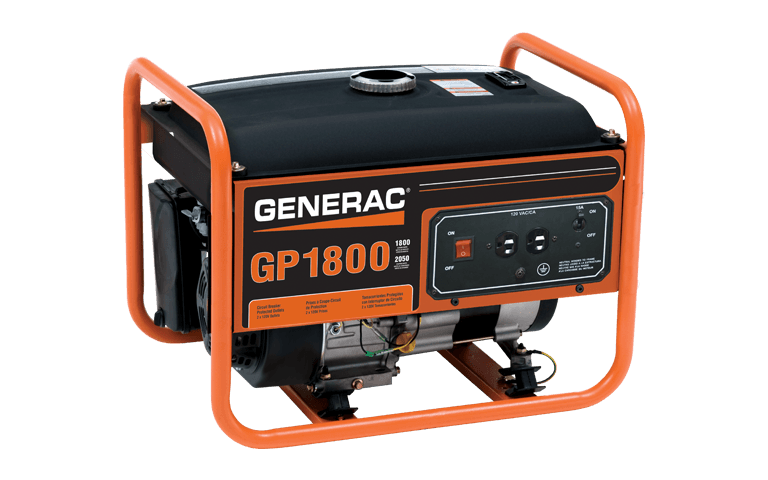A generator can make a huge difference in your experience during a big storm. Your family will be able to stay comfortable for the duration of the power outage, and your home and food won’t suffer. Choosing a generator can be overwhelming for some, so let’s review the differences among the three types of generators: diesel, natural gas, and propane generators.

Diesel Generators
Benefits: Engines that run on diesel have a longer lifespan than those fueled by natural gas or propane–they can last for up to 15,000 hours when they receive routine maintenance. Diesel is easily accessible, and this type of generator can provide higher amounts of power than the others. They also cost less to power than natural or propane gas generators.
Drawbacks: Diesel can’t be kept in storage for more than one year unless you add fuel stabilizers–even then, if it isn’t kept in conditions less than 70 degrees, one year is the maximum time to store diesel safely. Because of its popularity for generator use, gas stations can run out of it during a widespread power outage. Diesel generators are extremely loud and can be a nuisance to the operator or neighboring houses. They also produce significantly more pollution than natural gas or propane generators since the fuel does not burn cleanly. Engines run on diesel are prone to having diesel build-up in the exhaust system (called wet stacking), creating congestion that is difficult to remove and can decrease functionality.
Natural Gas Generators
Benefits: Generators powered by natural gas are quiet and clean-burning, so you don’t have to feel guilty about the excess emissions you are putting into the atmosphere when running the generator. Natural gas infrastructure is widespread throughout Florida, so you can likely have your generator hooked up to your home’s gas line.
Drawbacks: Natural gas generators generally cannot handle the same high power loads that diesel or propane engines can. Additionally, since homeowners cannot purchase natural gas at a gas station the way they can diesel or propane, you are at the mercy of your home’s natural gas line. If something were to happen to the line or the hook-up connection, you would not be able to use your generator. The cost of having a generator attached to the natural gas line may turn some people off from this option, as might the shorter lifespan of natural gas generators relative to a diesel engine.
Propane Generators
Benefits: Propane generators are clean burning like natural gas generators are, producing fewer harmful emissions. They are generally smaller and quieter than diesel generators, making them easier to handle and less of a nuisance to others. Propane is widely available and can be purchased at almost any gas station and many grocery stores. Unlike diesel, propane can be stored for many years without worrying about it degrading or becoming congealed.
Drawbacks: Like natural gas generators, propane-powered generators are not as long-lasting as diesel and cannot provide the same amount of power. The fuel is quite expensive compared to diesel, and it can be a bit pricey to install initially.
Whatever your choice of generator, it is important to purchase from the right place. Promise Electric is a certified reseller, installer, and maintenance partner of Generac generators. Call today for more information.


